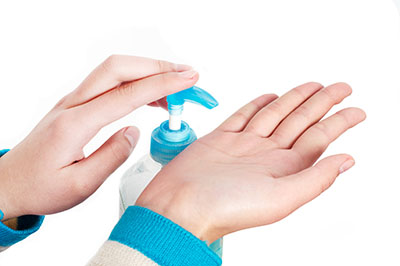Melbourne researchers have discovered alcohol-based hand hygiene products and cleaning disinfectants are becoming less effective against the hospital superbug, vancomycin-resistant Enterococcus (VRE).
VRE infections are notoriously difficult to treat because of their intrinsic and acquired resistance to many classes of antibiotics – Australia has one of the highest rates of hospital VRE in the world.
The study was a collaboration between the Peter Doherty Institute for Infection and Immunity (Doherty Institute) and Austin Health and was published in Science Translational Medicine today. Researchers looked at 20 years of data and found VRE has become progressively more tolerant to alcohol.
Study co-author, Infectious Diseases Professor Paul Johnson, Director of Research at Austin Health, first noted[1]
the paradox of increasing VRE despite increased use of alcohol-based hand hygiene products.
“Alcohol-based hand rubs are international pillars of hospital infection control and remain highly effective in reducing transmission of other hospital superbugs, particularly methicillin resistant Staphylococcus aureus,” Professor Johnson said.
Lead author of the study, University of Melbourne Professor Tim Stinear, microbiologist at the Doherty Institute, calls recent VRE strains “a new wave of emerging superbugs” and says they have emerged at a time when hand hygiene programs are being implemented more effectively than ever before.
“Alcohol-based hand hygiene use has increased tenfold over the past 20 years in Australian hospitals, so we are using a lot and the environment is changing,” Professor Stinear said.
The research team tested the bacteria in the laboratory and found the newer strains of VRE were more tolerant to alcohol exposure than older ones, and more likely to spread.
“We were also able to identify and document the specific genetic changes that have occurred in the bacteria over the 20 years, which also helps to explain the increased tolerance,” Professor Stinear explained.
“Hospitals need to ensure compliance with hand hygiene by using high-alcohol concentrate product. Furthermore, there also should be an enhanced focus on hospital cleaning as well as isolation of patients found to be colonised with VRE.”
[1] Epidemic Hospital Vancomycin-Resistant Enterococci, JIF 2010:202 (15 October)
More updates and news from the Doherty Institute
